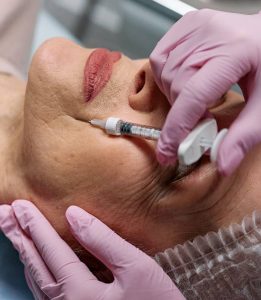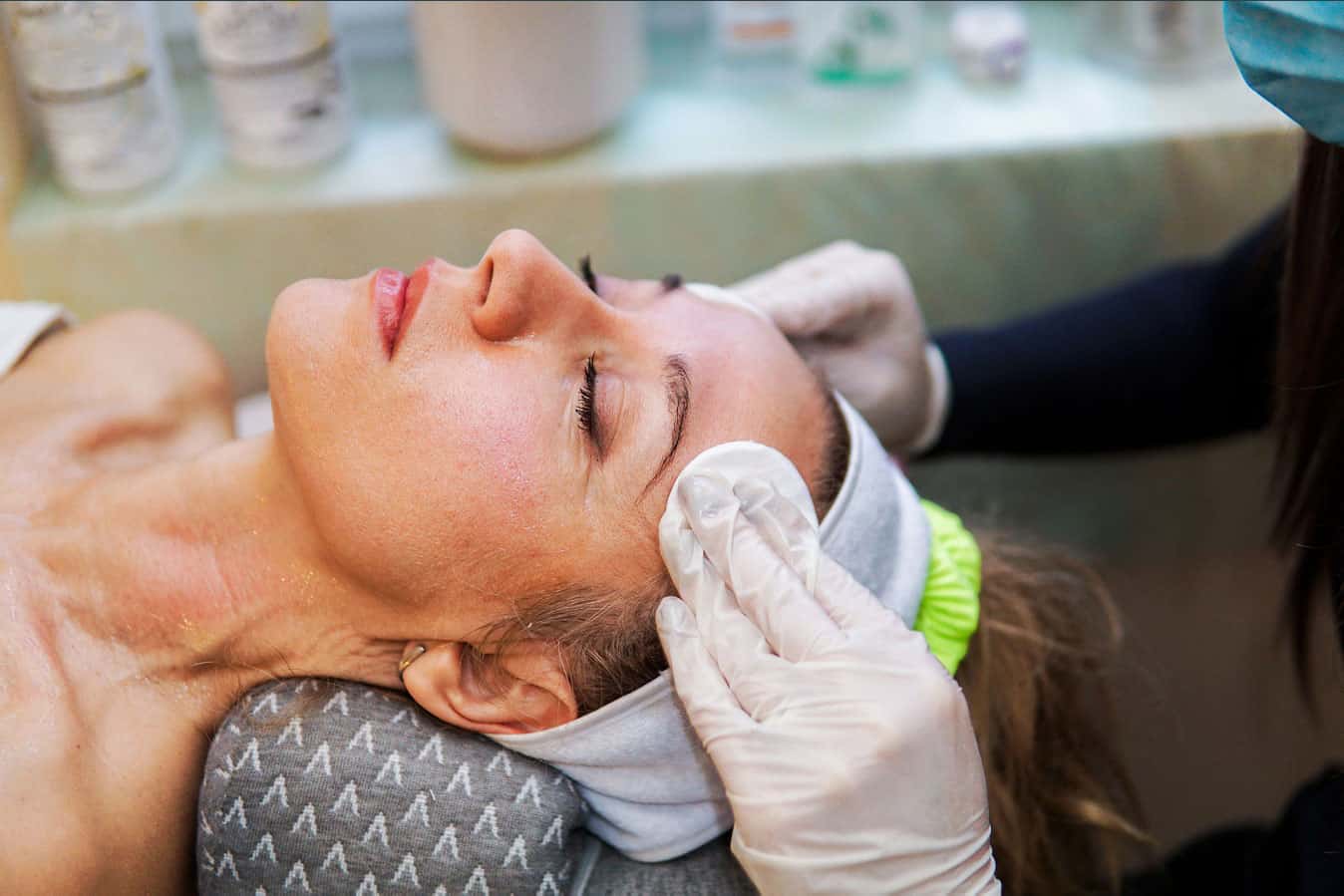New President of the Cosmetic Nurses Association (CNA) since January 2023, Sheri-lee Knoop has been a founding member of the group of nurses that came together during a boom in demand for cosmetic services during and post-COVID. She talks to the ANMJ.
Sheri-lee, who has her own cosmetic practice in Perth, first started out as a surgical and operating theatre nurse before she trained in Harley Street, London, back in the 1990s. There were five cosmetic clinics in Perth when she arrived in Australia in 1997 – now there is close to 5,000.
“Five doctors practiced back then and it was collagen and light injectable treatments, only filling lines. What started as less invasive or superficial, and so not complex, is now more complicated with major structural changes potentially occurring through treatments,” she says.
Still relatively new, the CNA is a not-for-profit membership-based organisation that was established in 2020 to serve as a collective voice for all nurses who provide non-surgical cosmetic services within the cosmetic industry in Australia.
“Nurses who perform cosmetic treatments are not recognised as a nursing specialty and, therefore, not represented. We needed to have a voice and be recognised by the government sector. CNA now have a voice and represent cosmetic nurses as a whole,” says Sheri-lee.

Demand in the cosmetics industry over the past few years post-COVID was unprecedented, she says. “We saw an influx into the market of new patients whom would not have been there normally. They were in this bubble, locked down, spending a lot more time with themselves – noticing their jowls, frown lines and other signs of ageing.”
More recently, however, statistics in NSW alone show a 35% drop in cosmetic treatments – “The reality of life, affordability, it’s coming back to an equilibrium. People came out of lockdown and were wanting to feel better and now it’s settling down,” says Sheri-lee.
Changing attitudes
The industry has grown enormously since the introduction of Botox in the early to mid-1990s. “When I got into cosmetic nursing 30 years ago, it was not commonplace to have people aged under 35 years as clients. Social media has changed the industry. Influencers like the Kardashians – they put looking after yourself and changing yourself on the map. But it’s been around long before – Jane Fonda is an example, but it wasn’t as prolific without social media,” says Sheri-lee.
“There’s an openness about how we look and what we’re able to have done. They do it (celebrities) so why can’t I? Those in their 50s often feel vain but the younger generation don’t seem to have that. Patients under 45 years think it’s necessary to present themselves on their best foot, it’s a non-negotiable.”
Industry crackdown
The Australian Health Practitioner Regulation Agency (Ahpra) recently announced several changes to tighten up the industry and unscrupulous practitioners – including on advertising, use of titles, and registration standards.
By and large, CNA has welcomed the changes and were at the discussion table with Ahpra alongside medical practitioners and other stakeholders. The changes “have shaken the tree and some dead wood has fallen out”, says Sheri-lee.

“We all have different standards and interpretations of what is acceptable, and represents best practice. There has been recognition that the industry needed improving and support that a lot of patients were being injured or harmed.”
However, Sheri-lee argues the guidelines could be clearer, as many of the changes are still open to misinterpretation.
“By not being able to legally discuss actual product names or specifics, it leaves potential clients confused about what they are actually going to be having and it leads them to believe practitioners are being deceitful about treatments.
“It is then possible that clinicians can use products or medications that are not what patients have requested in clinic. The new guidelines are, however, helping to eliminate this in the clinic but not in the patient’s education on which clinic to attend.
“People that are diligent will still be diligent and those that practice loosely may still be able to practice loosely”, says Sheri-lee.
CNA’s mission is to not only serve and protect cosmetic nursing in Australia, but to assist in maintaining the highest level of patient safety and transparent care. The industry is fraught with client demand and high expectations, she says.
“People will go and see someone to get what they want. It means health professionals in the industry need to be responsible. Our patients, particularly youth, are vulnerable to social media and to misinformation.
“Often, they don’t know what they’re shopping for and can be misled. It’s not like going to buy a car where all the specifications are available and you can do a comparison between a Hyundai or a Toyota or a Ford. We just don’t have that unbiased information available and it makes our patients vulnerable.”
Clearly defined career pathway
One of the challenges in the industry, Sheri-lee says, is the lack of standardisation of education and qualifications required to become a cosmetic injector. The CNA operates under a constitution, with an advisory committee that sets out standards for best practice for its members as the custodian of cosmetic nurses.
It advocates for patient safety as a priority, collaborating with government authorities and other representing associations in the industry to develop common ground for standards.

“It would be wonderful for all cosmetic nurses to have a clearly defined career pathway that is meaningful and recognises them for their commitment to best practice. A two-day course on the weekend cannot fully prepare you for safe work in the cosmetic industry. Treatments are complex and can be dangerous and need a high level of education.”
Sheri-lee, who only takes on nurses in her own practice who have two years’ postgraduate hospital experience, personally believes a consolidation of nursing training is very important before specialising in any area of nursing, including cosmetic nursing.
“I encourage new cosmetic nurses to stay in nursing to consolidate their skills first – to develop their decision making skills, analytical thinking, patient assessment and history taking. Patients don’t always connect the dots if you do not ask questions, you do not get the appropriate answers allowing you to provide safe treatments and care.”
If you’re interested in cosmetic nursing, visit Cosmetic Nurses Association








